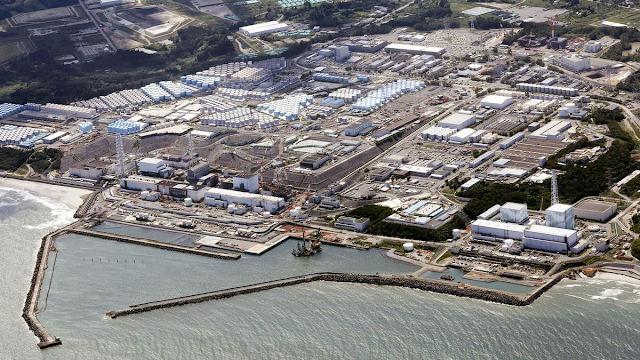Japan's Fukushima Water Release Triggers Diplomatic Ripples with Furious China
Japan's decision to release treated water from the Fukushima Daiichi nuclear plant into the ocean has sparked a diplomatic furor, particularly with neighboring China. The move, aimed at resolving a longstanding environmental concern, has raised concerns about potential environmental impacts and has ignited a tense exchange of words between the two nations.
The Fukushima Daiichi nuclear disaster in 2011 left Japan grappling with the aftermath of a catastrophic nuclear meltdown. Over the years, the Japanese government has been working to manage the situation, and a significant challenge has been the accumulation of treated water used to cool the damaged reactors. In April, Japan announced its decision to gradually release this treated water into the Pacific Ocean, a move that it claims is both safe and in line with international practices.
China was swift to express its anger over Japan's decision. Chinese officials and the public voiced concerns about the potential environmental impact of releasing radioactive water into the ocean. The Chinese Foreign Ministry criticized Japan's decision, emphasizing the need for transparency, thorough risk assessment, and consultation with neighboring countries before taking such a step. China's strong stance on the matter has further strained diplomatic relations between the two countries.
Critics argue that releasing the treated water could have adverse effects on marine life and ecosystems, as well as on local fishing industries. Japanese authorities maintain that the water has undergone extensive treatment to remove radioactive isotopes, making it safe for release. They also highlight that similar practices have been followed by other countries operating nuclear power plants. However, skepticism remains, and the potential consequences of the water release are a matter of concern for both local communities and neighboring countries.
The issue at hand underscores the delicate balance that nations must strike between addressing environmental challenges and maintaining diplomatic relationships. Japan's decision reflects its commitment to managing a critical issue that has persisted for years. However, the lack of consensus among neighboring countries, particularly China and South Korea, raises questions about effective communication and collaboration in the region.
The situation surrounding Japan's Fukushima water release serves as a reminder of the complex and multifaceted nature of environmental and diplomatic concerns. As the process of water release unfolds, it is imperative for all stakeholders to engage in transparent and constructive dialogue, backed by scientific assessments, to ensure that the potential consequences are accurately understood and minimized. This incident also highlights the broader need for international cooperation on matters related to nuclear safety and environmental preservation, especially in regions prone to geopolitical tensions.
Japan's decision to release treated water from the Fukushima nuclear plant has ignited a diplomatic dispute with China, further highlighting the intricate interplay between environmental responsibility and international relations. As both countries navigate the complexities of this issue, the global community watches closely, underscoring the importance of transparent communication, cooperation, and responsible decision-making in addressing challenges that extend beyond national borders.

.png)
Comments
Post a Comment